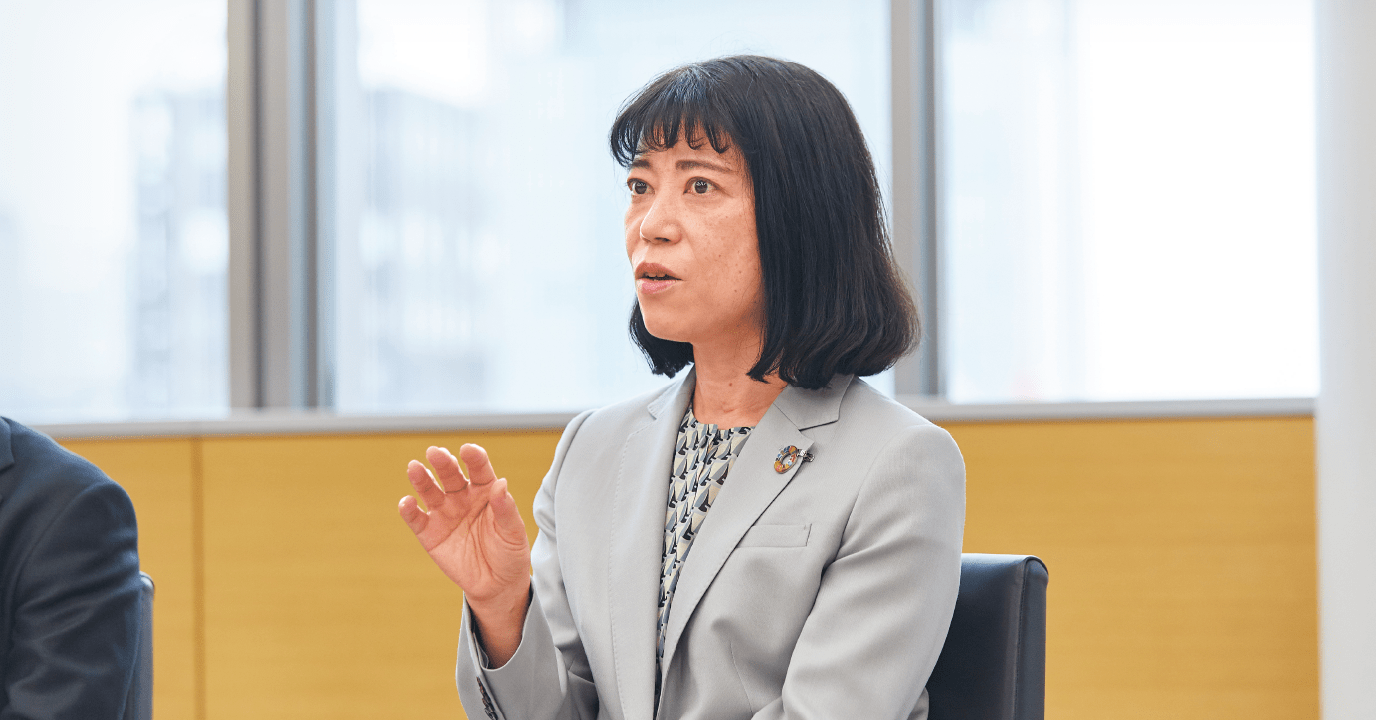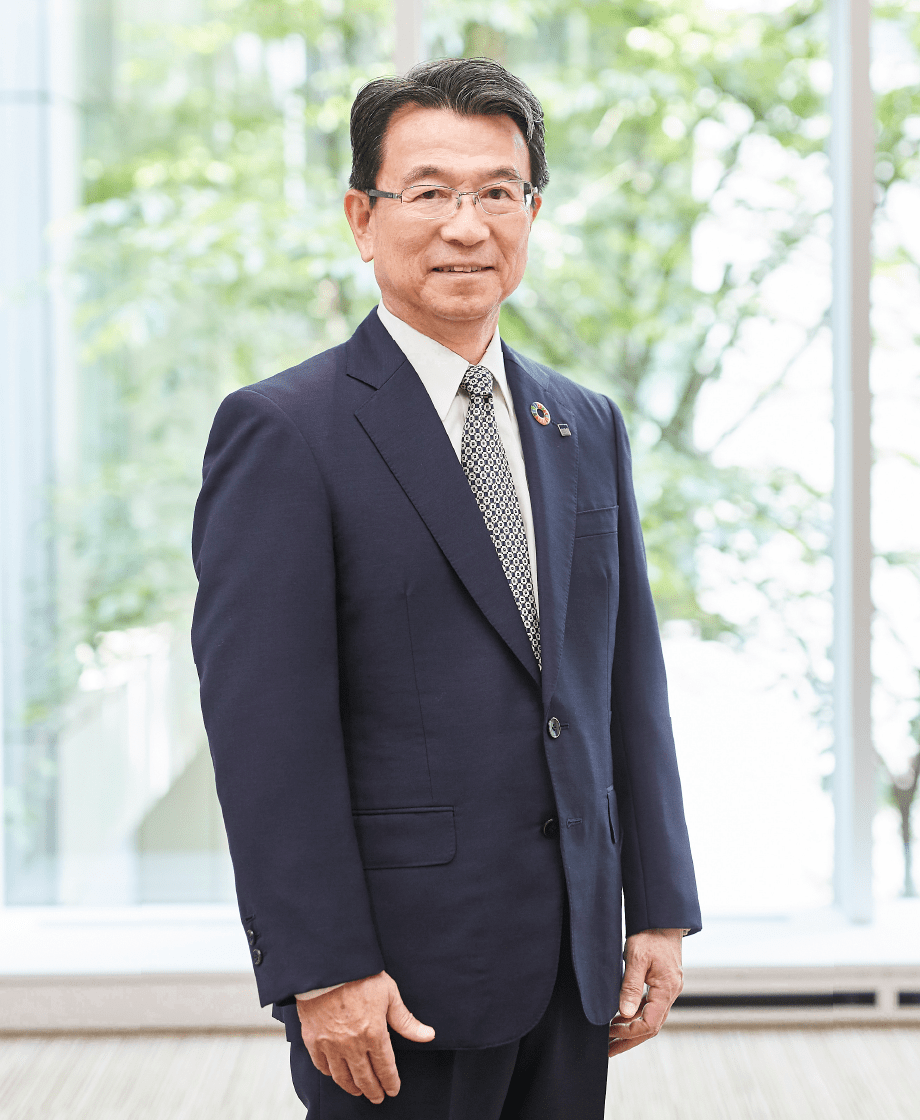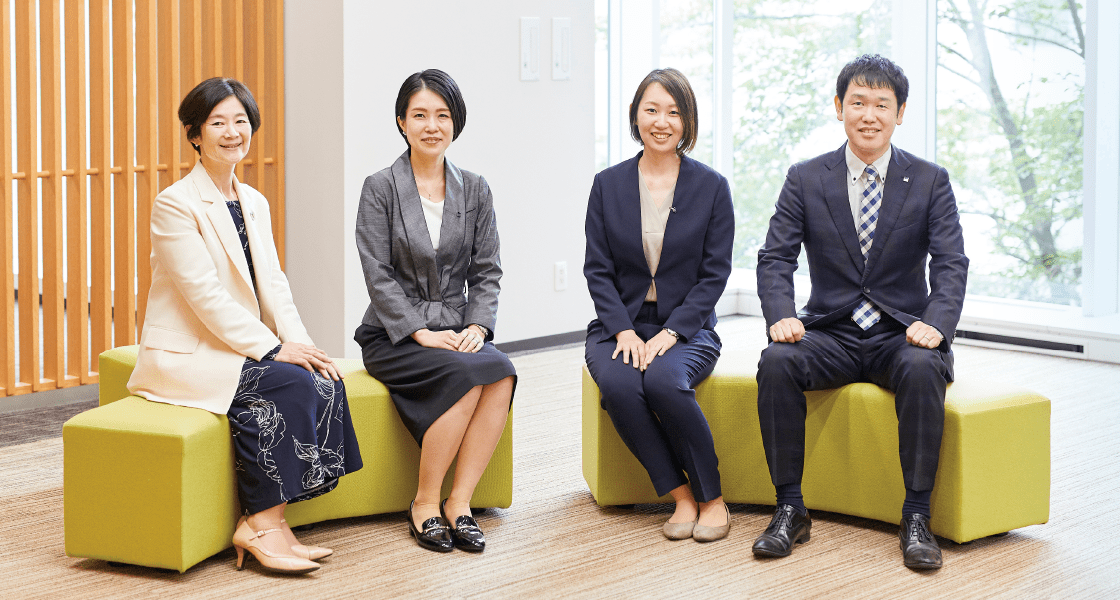Round-table Discussion with Outside Officers

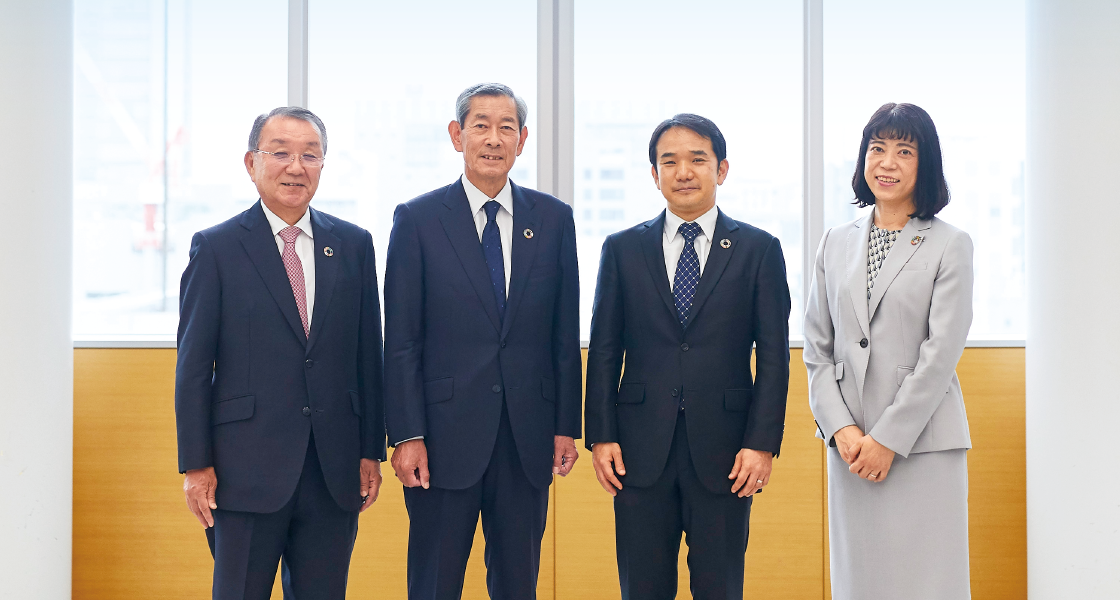
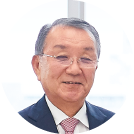
Masao Nomura
Member of the Board of Directors, Outside Director
Senior Adviser to the Board, Iwatani Corporation
Outside Director, Keihanshin Building Co., Ltd.
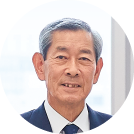
Shusaku Nagae
Member of the Board of Directors, Outside Director
Special Corporate Advisor, Panasonic Holdings Corporation
Outside Audit & Supervisory
Board Member, Nikkei Inc.
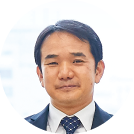
Yasuo Hishiyama
Outside Audit & Supervisory Board Member
Partner Attorney at Law, TANABE & PARTNERS
Member or appraisal committee (Land Lease Non-Contentious Cases) at Tokyo District Court

Akiko Tanabe
Outside Audit & Supervisory Board Member
Representative, Akiko Tanabe CPA office
Outside Director, OIE SANGYO CO., LTD. Partner of Midosuji Audit Corporation
Reinforcing the governance system and accelerating sustainable
management to achieve sustainable growth
ONO continually strives to reinforce corporate governance by actively incorporating the opinion of outside officers. Two Outside Directors and two Outside Audit & Supervisory Board members discussed the governance system, compliance, and outlook for achieving sustainable growth.
Steadily reinforcing the corporate governance system and related activities
Nomura
When I took up the position of Outside Director in FY2018, the number of Outside Directors was raised to three from two, resulting in three of the eight Directors being Outside Directors. Two years later, in FY2020, a female director was appointed, and in FY2021, the following year, I replaced the President as the chairman of the Executive Appointment Meeting and Executive Compensation Meeting. Even regarding cross-shareholdings, we have reduced their weight to 14.4% as of March 2023 from 31.6% five years earlier.
Looking back over the five years since I took up my position, one can probably argue that efforts related to our corporate governance have steadily moved forward.
Nagae
I feel that the Company has created a system to support Outside Officers. Despite becoming an Outside Director only two years ago, I have had many opportunities to deepen my understanding of the Company, which has included visiting various bases such as research bases and interacting with employees. As an Outside Director, I try to make statements without worrying about what people will think. For example, the President currently serves as the Chairman of the Board of Directors, but I have made several proposals, including “it may be good to separate supervision and execution in the future” and “it may be good to allocate time for open discussions on topics set by the Board of Directors,” and I was able to do that because of the firm support that makes it possible to deepen my understanding of the Company.
Hishiyama
I have served as an Outside Audit & Supervisory Board member for seven years, and by always possessing a perspective of “making the Company better,” the full-time Audit & Supervisory Board members work extremely close to the workplace, which includes collecting information through direct contact with more than several hundred employees each year.
As an attorney, I am sometimes in charge of the helpline, and the opinion of employees play a key role in improving the organization. In that sense, it is very meaningful that Audit & Supervisory Board members directly hear the opinions of employees. If the business expands overseas in the future, it may become more difficult to do that for various reasons, but I will continue to do so as much as possible.
Tanabe
I have been involved in three evaluations of effectiveness, and I think that the operation of the Board of Directors has gradually improved. Full-time Audit & Supervisory Board members also look at issues related to the operation of the various bases and provide penetrating proposals to the President from an independent perspective, which leads to lively deliberations by the Audit & Supervisory Board, too, which I think is wonderful.
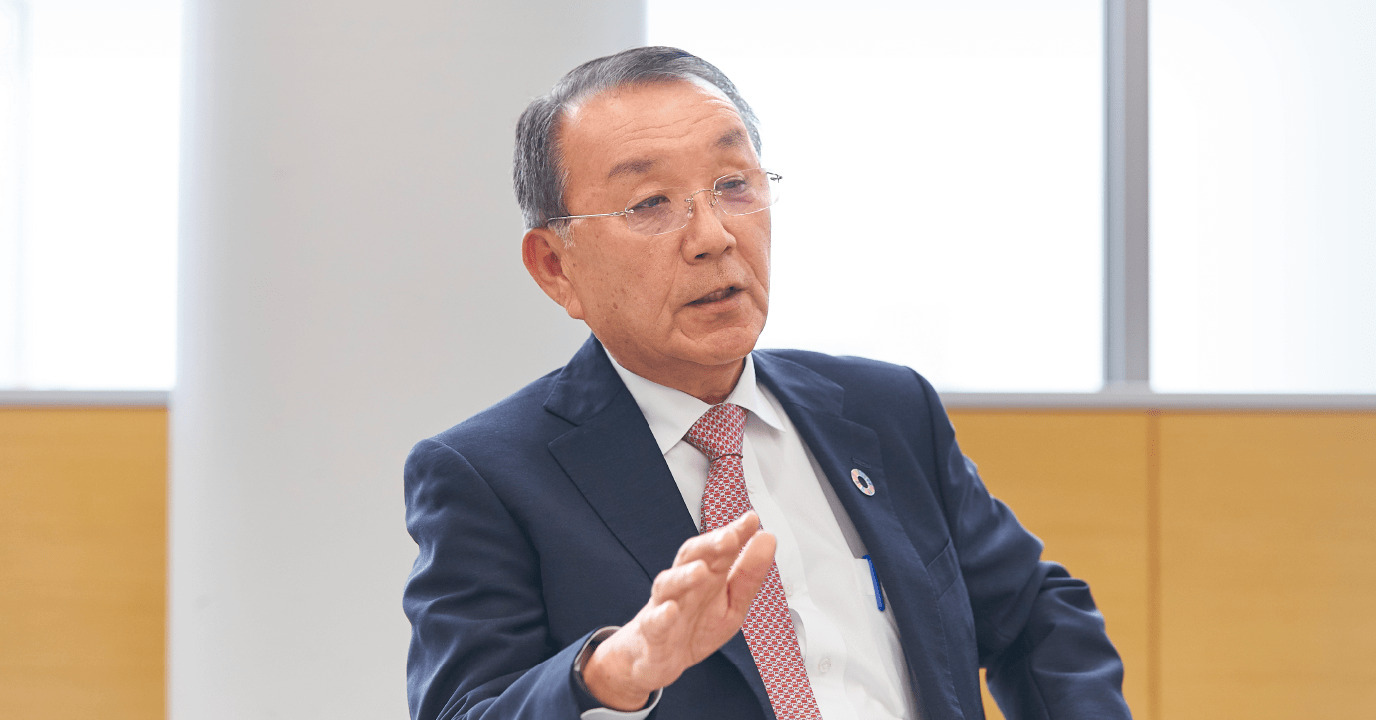
Aiming to create an effective compliance system
Nomura
Taking into consideration previous serious compliance violations, we have worked to reinforce the compliance system, which has included appointing a Compliance Officer as the responsible person for each department in FY2021 and installing a Compliance Manager in all departments as a consultation counter. However, I think it is important to take care so that employees do not feel they are being monitored in their work. We will create an open worksite in which anything can be said. It is important to move forward with the creation of the system by having people take to heart the idea that this is directly linked to preventing scandals.
Nagae
There was a focus on how to promote the creation of a system to prevent recurrences, and I got the impression that decision-making was quick, and things were moving forward smoothly. In addition to being a size that makes it easy to demonstrate its maneuverability, the foundation of a strong desire for compliance makes this possible.
Hishiyama
Japan Exchange Regulation released its “Principles for Preventing Corporate Scandals,” which states that “companies should establish this cycle of early detection (of compliance violations), swift response, and subsequent corrective action and embed the process into their corporate culture.” Having reinforced our compliance system, we now quickly detect speech and actions that could lead to violations, and efforts to contribute to prevention have taken root. I see this as truly being in line with that principle. Furthermore, in the message from the President to new recruits in FY2023, he stated that he wants them to take the following three points to heart—”be honest and comply with laws and regulations,” “have a dream, continually take on challenges to achieve the dream, and enjoy the process,” and “make decisions from a patient perspective.” It is extremely significant that top management communicated a message that compliance should be given the greatest priority.
Opportunity, motive, and justification are the three bases of the so-called “fraud triangle,” and one can argue that motive and justification, the psychological factors, are deeply rooted in the corporate culture. Therefore, it is important that the attitude of valuing compliance not become an empty idea. I want to properly conduct monitoring as an Outside Audit & Supervisory Board member.
Tanabe
Examining the compliance monitoring results report, one cannot miss that there were compliance violations for reasons other than lack of integrity. There were many cases when the act was not recognized as a violation, but was actually considered good. Even so, the person was, of course, disciplined. Because a company has a responsibility to protect its employees, it is important to know where the risk of compliance violations lie. One issue that should be examined is employing creative ways, such as training, so that reinforcing compliance does not become a burden for employees.
Nomura
Because of my experience as manager I think that compliance is the lifeline, the last line of defense, for companies. A small compliance violation can snowball into a big problem, and shake even massive companies. Furthermore, as Outside Audit & Supervisory Board member Tanabe pointed out, there have been cases when compliance violations occurred with the person not realizing that what they did was a compliance violation, and it is important to continue to foster a corporate culture in which employees immediately ask if they are not sure or have a concern.
Tanabe
The Company has added compliance initiatives as an item for employee evaluations. It is only natural that a violation lowers an employee’s score, but in the future, it may be important to examine what activities should raise a score. A mechanism in which the Company positively evaluates employees working on compliance would increase employee’s awareness of the issue, and make it easier for this to take root as corporate climate.
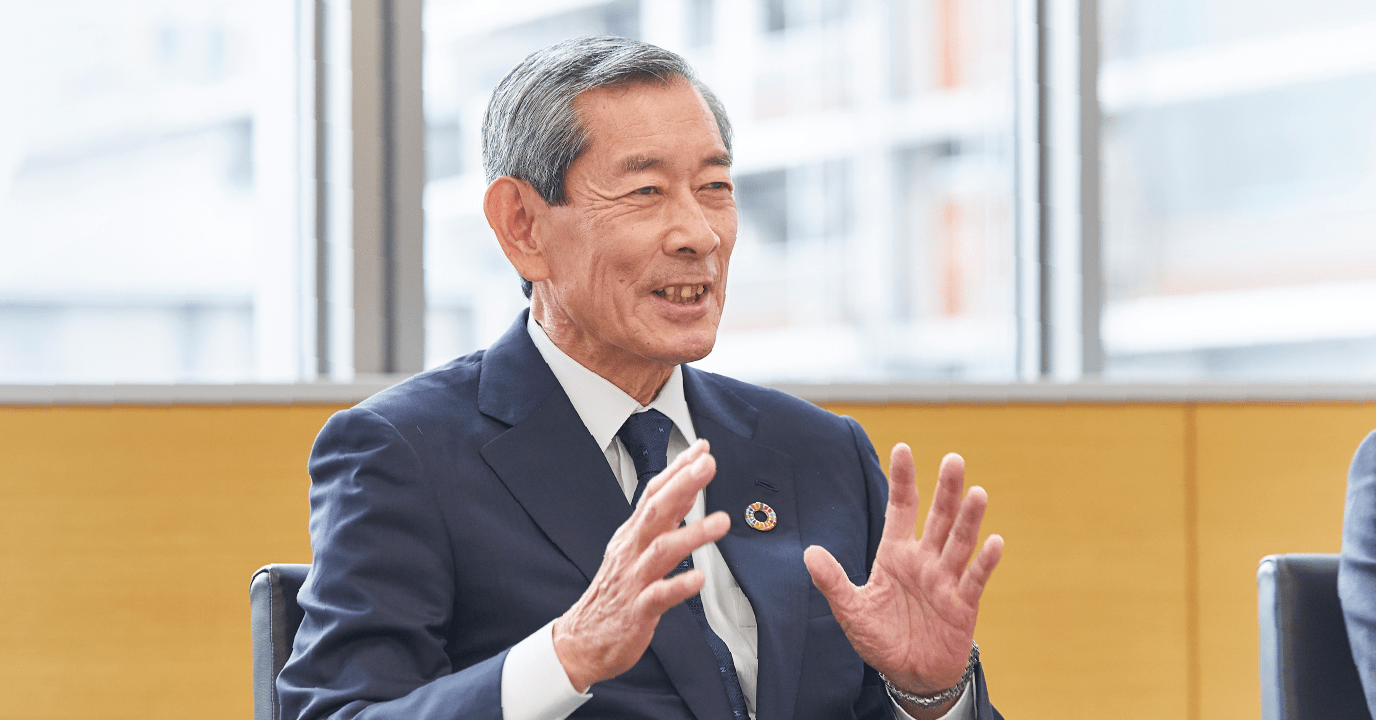
Issues that should be tackled when implementing the global strategy
Nomura
As for promoting a global strategy, the Company first moved forward with efforts to implement governance, compliance, and sustainability within Japan, our home base. For the U.S., the country we are focusing on the most, we are undertaking such efforts as expanding training, because it is necessary to instill an awareness of harassment related to religion and race. While accepting the values of local people is the most important point when expanding overseas, there are limits to what can be done by dispatching leaders from Japan. It is also necessary to simultaneously promote initiatives to quickly train leaders who can handle management locally.
Tanabe
It is extremely important that we implement global governance when expanding overseas and business domains. Having formulated the code of conduct “Ono Pharmaceutical Code of Practice” and “Compliance Global Policy,” we are moving forward with such efforts as reviewing the various provisions, and I think we must conduct further deliberations and make preparations regarding such issues as to what extent to delegate authority to local subsidiaries, to what degree should headquarters supervise this, and what type of monitoring should be used.
Nagae
As for compliance training, it is critical to expand the content of training from a perspective of our global expansion. When promoting the global expansion at Panasonic, I truly saw the importance of “localization.” If aiming to implement a business model based on local production and local sales, there are many things that must be taken into account, including properly ascertaining local conditions, such as demand, culture, and prices, which are completely different than those of Japan, and taking into consideration exchange rate risk, other risks, trends among competitors, and other factors.
There are many companies that have been forced to withdraw from markets if insufficient groundwork is done, particularly research on competitors, and this must be taken to heart. For ONO, the business expansion is limited to the U.S., Europe, Korea, and Taiwan, which means sufficient research can be conducted; therefore, it is important to always firmly understand the Company’s position. It is necessary to envision both an optimistic and pessimistic scenario, and if things start to look even slightly negative, to quickly decide to withdraw.
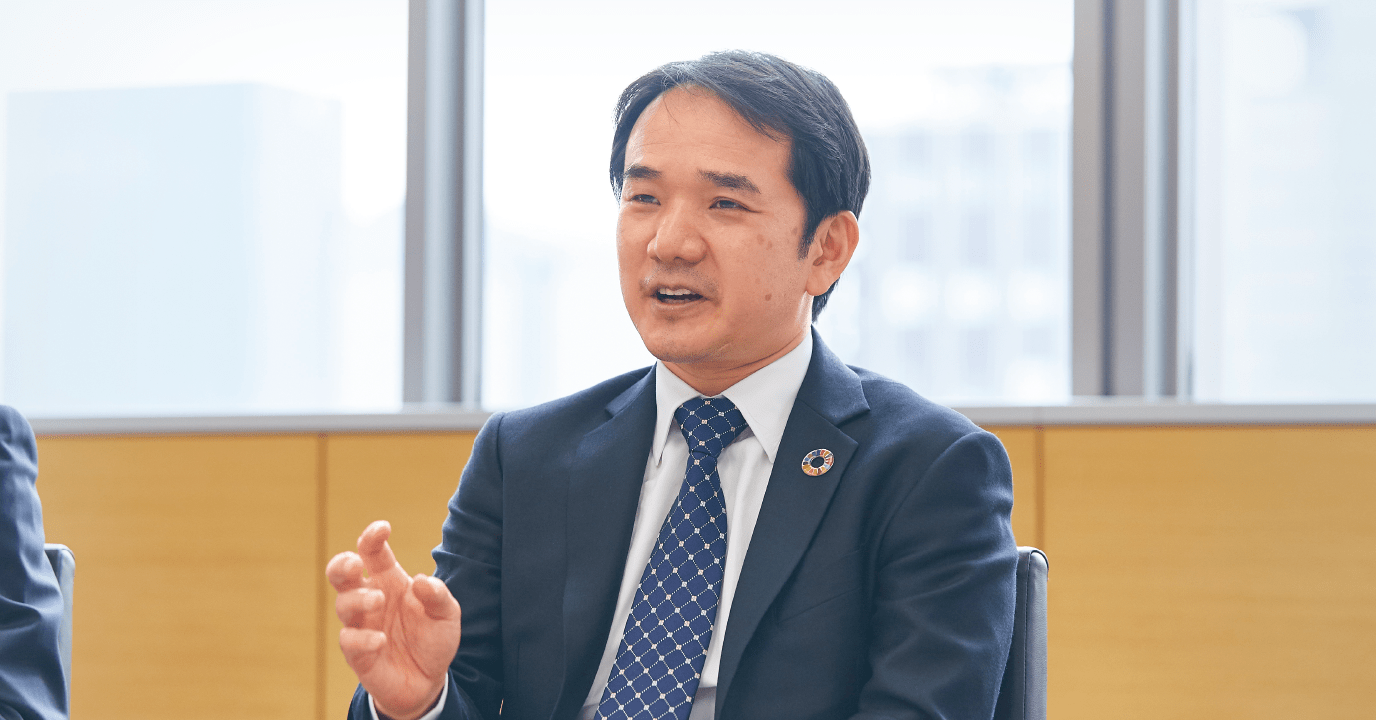
Accelerating sustainable management and generating sustainable growth
Tanabe
Having changed the name of material issues from “CSR material issues” to “material issues for management” based on the Sustainable Management Policy newly formulated in FY2021, employees, too, can probably understand that sustainability-related activities are important initiatives tied to our Corporate Philosophy. All eighteen of the material issues are important, but I am particularly focused on expanding human capital. We are moving forward with an examination of a global human resources system, which Outside Director Okuno is providing advice on, and we will gradually expand the scope of human resources needed as we expand the business domain and promote sustainability activities, not simply promote existing businesses. On the other hand, as Japan’s labor force shrinks, an important issue is whether we can capture outstanding human resources. I also think that it is necessary to further examine the ideal state for the Company’s finance to maximize corporate value.
Nagae
I always say that employees are the most important stakeholders. First of all, unless employees are autonomous, business performance will not improve and corporate governance and compliance will not properly function. As Outside Audit & Supervisory Board member Tanabe has pointed out, the existence of the Company will be in danger if it cannot attract outstanding human resources. When I see the lively exchange between employees at such venues as the Medium-term Management Plan Announcement Meeting and in-house Business Contest, I truly feel that ONO values employees.
I think that to further promote globalization of the business, it is important for all employees to take on more challenges on various front. For this, too, the Company must continue to have an open atmosphere.
Hishiyama
As for sustainability-related initiatives, they are important not only to reduce risk but also to link them to continued earnings. For example, one possible idea is to examine creating additional new businesses linked to well-being, such as “extension of healthy life expectancy,” through the use of digital IT.
Nomura
People have been talking about our being in a time of 100-year lifespans for a good while now, but after that, there will likely be “a time of healthy lifespans of 100 years.” I want ONO to become a corporate group that can take on the challenge of achieving “a time of healthy lifespans of 100 years.” It would probably be best if both management and employees unite to learn while firmly ascertaining global trends.
